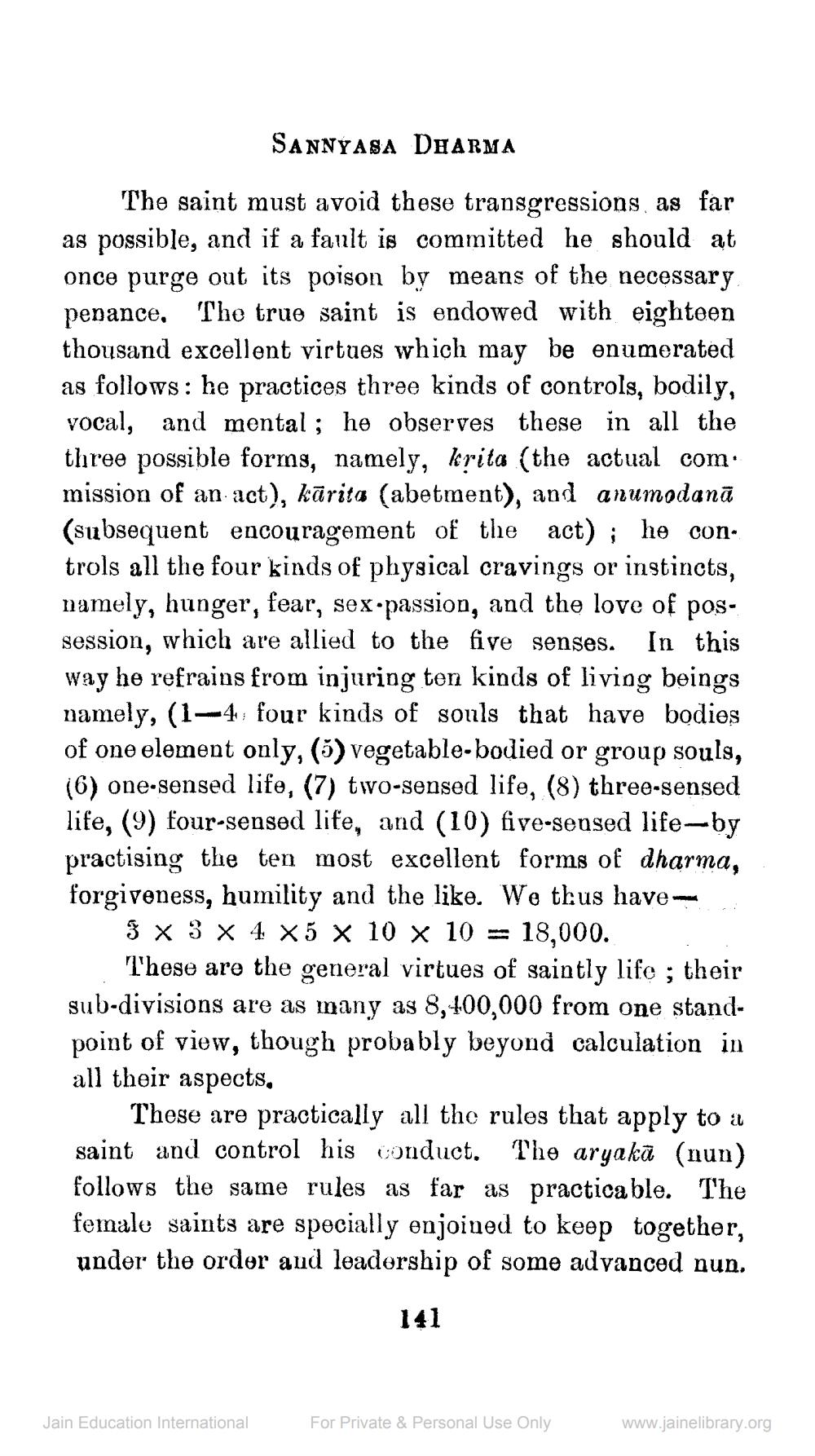________________
SANNYASA DHARMA
The saint must avoid these transgressions, as far as possible, and if a fault is committed he should at once purge out its poison by means of the necessary, penance. The true saint is endowed with eighteen thousand excellent virtues which may be enumerated as follows: he practices three kinds of controls, bodily, vocal, and mental; he observes these in all the three possible forms, namely, krita (the actual com. mission of an act), kārita (abetment), and anumodanā (subsequent encouragement of the act); he controls all the four kinds of physical cravings or instincts, namely, hunger, fear, sex•passion, and the love of possession, which are allied to the five senses. In this way he refrains from injuring ten kinds of living beings namely, (1-4 four kinds of souls that have bodies of one element only, (5) vegetable-bodied or group souls, (6) one-sensed life, (7) two-sensed life, (8) three-sensed life, (9) four-sensed life, and (10) five-seused life-by practising the ten most excellent forms of dharma, forgiveness, humility and the like. We thus have
3 X 3 X 4 X 5 X 10 x 10 = 18,000.
These are the general virtues of saintly life ; their sub-divisions are as many as 8,400,000 from one standpoint of view, though probably beyond calculation in all their aspects.
These are practically all the rules that apply to a saint and control his conduct. The aryaka (nun) follows the same rules as far as practicable. The female saints are specially enjoined to keep together, under the order and leadership of some advanced nun.
141
Jain Education International
For Private & Personal Use Only
www.jainelibrary.org




